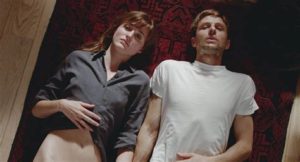Grief, Fate, and Destiny in 'Wolf Like Me'
'Wolf Like Me' works if you want a show to shut off your brain while watching. If you think too much, you'll hurt yourself.


This film premiered at the 2021 Cannes film festival and is Joachim Trier’s third installment in his “Oslo Trilogy” with Renate Reinsve (Julie) winning Best Actress for her performance in the film.
Like chapters in a book, The Worst Person In The World follows the progression of Julie’s life from 29 to 33 years old, narrated in third-person as if you’re seeing her life decisions in the rearview mirror. The Worst Person In The World follows a part of life I don’t see often portrayed on-screen: extended adolescence. Sometimes, you want to burn your life down to embers to embrace the possibility of starting anew, and it doesn’t have to be epic like a bonfire; it can be as slow as watching a fireplace.

The Worst Person In The World feels like having your nerve endings rubbed raw. I found myself painfully reflected in Julie’s prologue. Unsure of what came next and impulsively deciding that the next thing you choose in your life will make you feel alive, if we keep that idea within the confines of college majors, then Julie and I are the same, but that isn’t true for the rest of the story.
There are two relationships that I viewed as having the most impact on Julie’s life: Aksel and Eivind. She meets Aksel at a moment in her life when she feels very free and in charge. He is a comic book artist, 15 years her senior. Dating in two different time periods is difficult, something Aksel mentions when the pair first get together, especially when Aksel brings up the idea of kids to Julie. He’s 44 years old and at a moment in his life where kids are a possibility, and Julie isn’t at that place yet. I sympathize with her. She feels like she’s just gotten to a place in life where everything makes sense—a grown-up relationship, a new career, and she is asked to stop that for the promise of domesticity. A point is driven home when Aksel is at a comic book event, and in his element, and Julie is definitely not. Like two ships passing in the night, or rather, Julie’s ship delaying its docking in Aksel’s harbour.

A moment of clarity or not, that same night, she meets Eivind. Both are in relationships, and nothing happens, but the seeds of something happening in the future are planted. It’s months later that Eivind and Julie run into each other again. Julie meets Eivind’s wife, Sunniva. After some time, Julie breaks up with Aksel, and Eivind with Sunniva, and the pair move in together. This relationship feels different to Julie- as if there are new lessons to learn in this new chapter of her life.
Julie finds out that she’s pregnant and is unsure how to tell Eivind if she wants to keep the baby or not. A chance encounter with Aksel’s brother reveals that Aksel has cancer. Life’s cycle. She goes to visit him, and it’s their following conversation rehashing their lives apart that cemented why I’d pick Aksel over Eivind any day. Julie tells Eivind of the pregnancy, and the pair separate. Aksel’s condition continues to worsen, and he passes away one night. Julie miscarried that morning.
This is how Julie’s story ends. Not really, you understand. Julie feels like a real person who continues to live on even after the cameras stop rolling. When she enters her apartment after a day of working as an on-set photographer, you don’t get the notion that she’s dissatisfied with her life, as she was in the beginning. Life’s messy and you should be allowed to colour outside of the lines, which is why you’re probably not the worst person in the world.
Related lists created by the same author
'Wolf Like Me' works if you want a show to shut off your brain while watching. If you think too much, you'll hurt yourself.